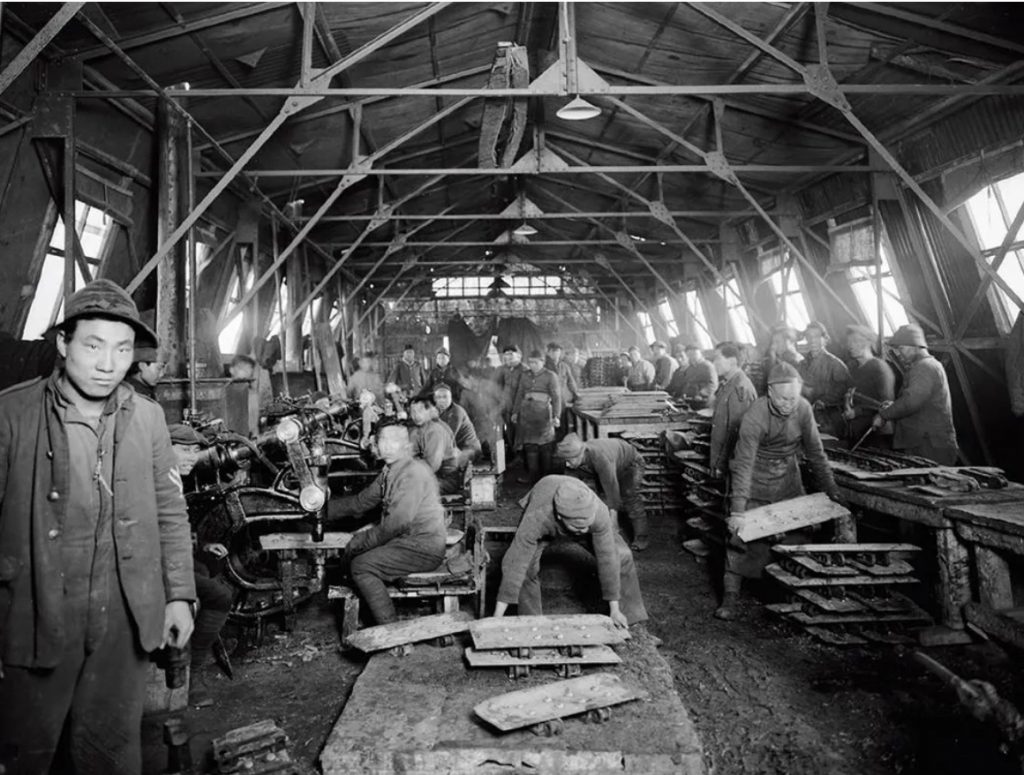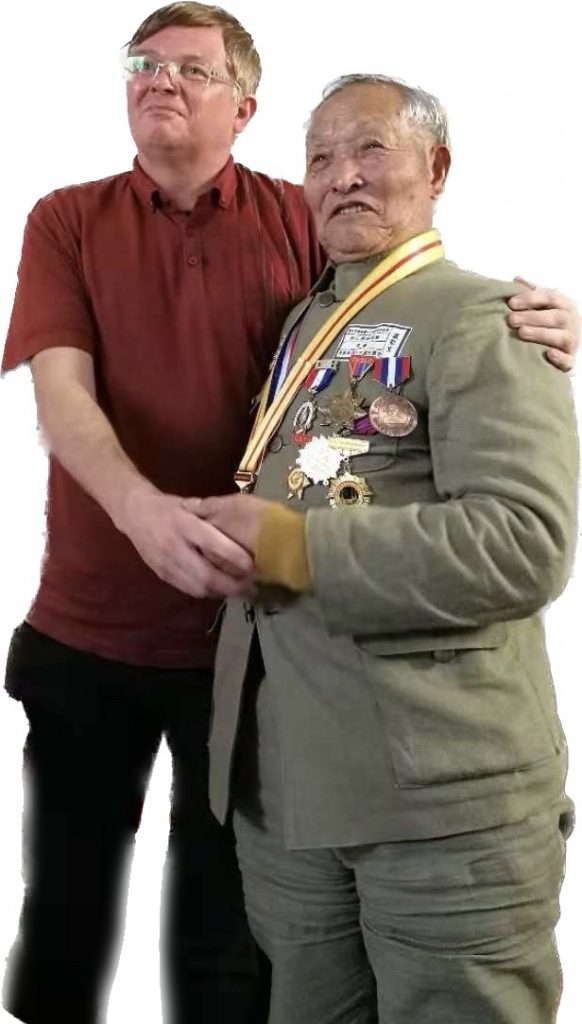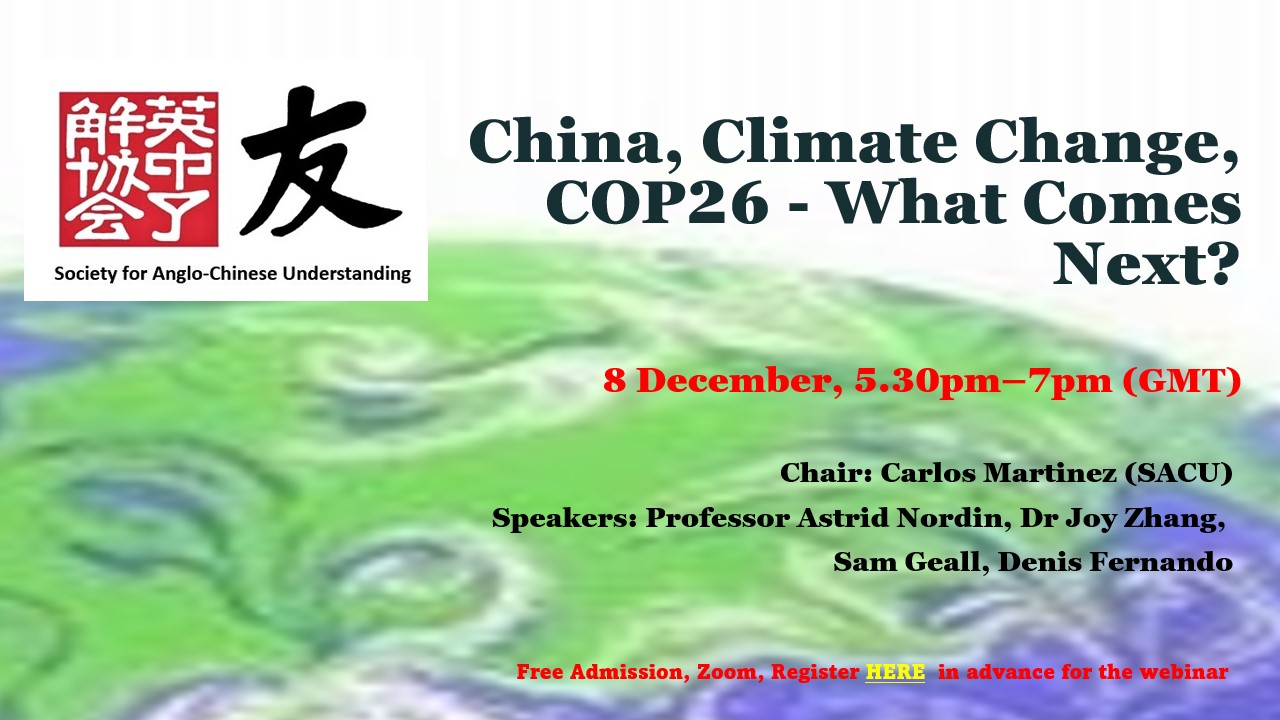
On the eleventh day of the eleventh month at the eleventh hour, Britain will respectfully remember and honour those who fought in and those who sacrificed their lives in the two world wars. This is personal to me, as it is to many of you. My maternal grandmother risked her life nightly with the artillery teams defending Southampton from bombing raids. My maternal grandfather was in the Royal Hampshire’s in North Africa and in Italy including the carnage of Monte Cassino. My paternal grandfather was a pilot in the RAF during the Battle of Britain.
Both 1914-1918 and 1939-1945 were world wars. Millions struggled and lost their lives around the globe. This includes China which supported the Allies in both conflicts. In this article I’ll remind us of the scale of that Chinese contribution.
China’s Contribution to World War 1
China first offered military support to the Allies in 1915, but the British government turned the offer down. China had every reason to oppose Germany, which was then occupying areas of China’s Shandong Province and virtually running it as a colony.
Chinese labourers support the Allies
Starting in late 1916, China began sending thousands of men to support Britain, France and Russia. These labourers repaired tanks, assembled shells, worked on transport supplies and munitions, and helped to dig the trenches. By the end of the war, Chinese workers would rank as the largest and longest serving non-European contingent in World War I. France recruited 37,000 Chinese workers, while the United Kingdom took in 94,500. Altogether 3,000 of these men lost their lives. A notorious incident took place in February 1917 when a German submarine sank a French ship called the Athos, leading to the death of 500 Chinese workers on their way to support the war effort in Europe.
China and the Versailles Treaty
Shamefully, China was very badly treated at the Versailles Peace Treaty. China was only allowed two representatives at the conference. The Chinese request for the restoration of Shandong to Chinese rule was ignored and an integral part of China was placed in Japanese hands. The Chinese people were outraged by this injustice, an anger which found expression in the famous May Fourth movement.
China’s Contribution to World War Two
Although the story of Chinese resistance during World War Two is little known in the West, it was possibly only the Chinese peoples’ refusal to submit to Japanese forces that prevented the victory of Fascism, especially in Asia.
The war in China broke out in 1937, although hostilities had already started. The Communist armies led by Mao Zedong and the Nationalist armies led by Chang Kai Shek fought against the odds, tooth and nail, to defend every inch of Chinese soil. From 1941 to 1945 Yunnan Province in south-west China was one of the most vital theatres of the whole war. The Japanese Army threatened to advance up from Myanmar and overrun the whole of China. This in turn would have meant the Soviet Union having to send vital troops and resources, then locked in the struggle against the Nazi advance into Russia, eastwards to protect the border.
It’s at this point that our own Joseph Needham got involved, helping to ensure vital supplies of equipment and scientific knowledge to the Chinese war effort. It’s the point at which American and British pilots formed the famous Flying Tigers along with Chinese comrades to keep the skies over Yunnan safe for supplies to be thrown in.
On a visit to Tengchong, a large city in Yunnan, near the Myanmar border, I had the privilege to meet the gentleman here. His name is 卢彩文 , Lu Caiwen. He is a veteran of that war. In 1944, almost exactly as my grandfather was inching up the mountainside at Monte Cassino under murderous fire, he was crawling up another mountain near Tengchong, with the China Expeditionary Force, determined to dislodge the Japanese army from this strategic stronghold. At the foot of the mountain is a 53,000 square metre cemetery where rest the 10,000 CEF soldiers who made the ultimate sacrifice. Even now, decades later, Lu’s voice shakes with emotion, as he remembers the comrades who fell around him. Every few days, veteran Lu Caiwen visits the graveyard to lay chrysanthemums in memory of his fallen comrades.
China endured one of the longest and bloodiest campaigns of any nation fighting in World War II, with 30 million Chinese citizens dying, including 2.2 million soldiers, a war which 100 million more Chinese finished as refugees.
The War to end all wars
My grandfather died after a well deserved full and happy life. When I sat next to Mr Lu in his Tengchong home in 2019 I knew my grandfather was there in the room, listening to his stories as attentively and appreciatively as I was. They shared the same slightly mischievous twinkle in their eyes, maybe the light in the eyes of those who have looked on the brutality of war and know better than us, the precious everyday beauty of peace.
Old comrades across the world, we, to whom you gave the gifts of life and love, salute you and thank you for your sacrifices, brothers and sisters in arms!

